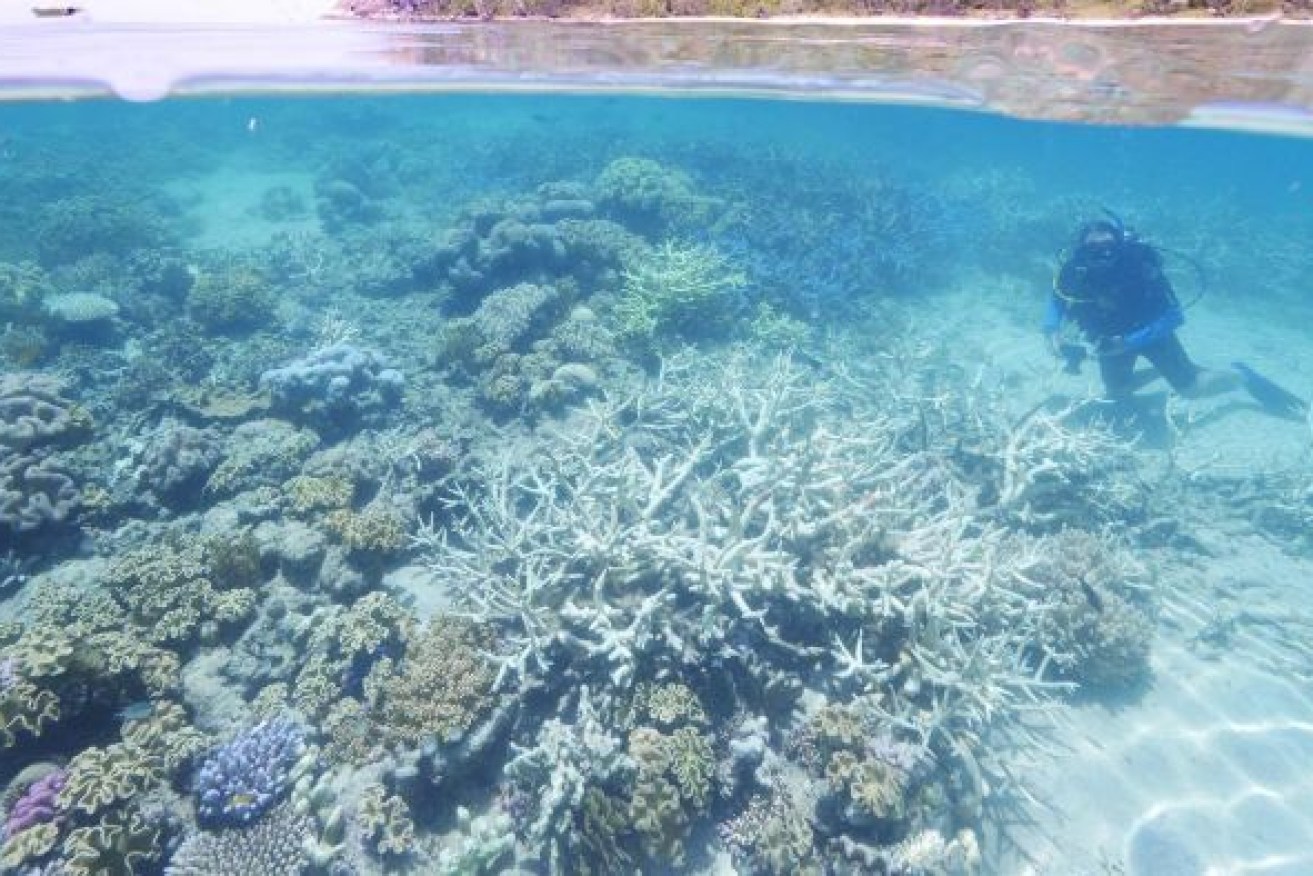Coral bleaching kills one third of reef: study

Supplied
Bleaching has killed 35 per cent of coral in central and northern parts of the Great Barrier Reef, extensive aerial and underwater surveys have revealed.
The ARC Centre of Excellence for Coral Reef Studies research is the first confirmation of how much coral has died in the World Heritage area since the mass bleaching began earlier this year.
• Zoo kills gorilla that was dragging boy around
• Customers brand Telstra’s compensation an ‘insult’
• Johnny Depp’s defenders dismiss violence claims
Previous surveys have revealed 93 per cent of the reef has been bleached to some extent.
However, some coral can recover, depending on the severity of bleaching.
James Cook University’s ARC survey reveals more than 50 per cent in the northern section and an average of 5 per cent in the central section has died, which means the coral will not recover.
Professor Terry Hughes said surveys of 100,000 corals on 84 reefs, between Townsville and Papua New Guinea, delivered good and bad news.
“The good news is that the reefs around Cairns and south down to Townsville have relatively light levels of mortality from bleaching,” he said.
“On those reefs between 5 and 20 per cent of corals have died. That’s good for the tourism industry.
“Unfortunately it’s a different story north of Cairns where 24 of the reefs we surveyed had more than 50 per cent mortality so far.
“When bleaching is that severe it doesn’t only kill the species susceptible to heat, it also kills off the tougher 50-to-100-year coral.
“So the mix of species has really be badly damaged in the north and that makes recovery much harder.”
It is the third mass bleaching to hit the Great Barrier Reef in 18 years, but scientists said the current event was the most extreme.
Coral bleaching is caused by abnormally high sea temperatures that kill the tiny marine algae essential to coral health.
Professor Hughes said the impact of the bleaching was still an unfolding picture and the final death toll would not be clear until October or November this year.
Researchers said the more mildly bleached coral were expected to regain their normal colour in the next few months.








